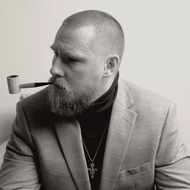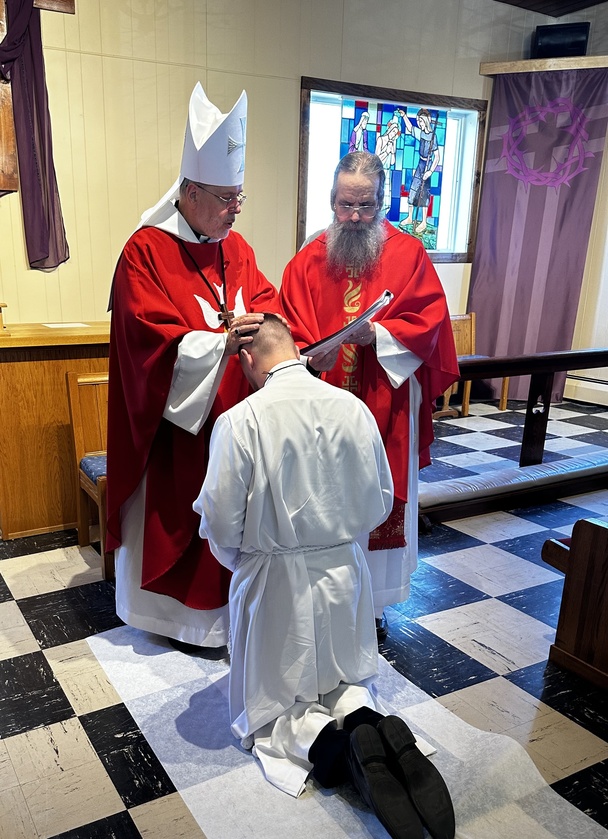
Yesterday, I made a cursory case for what is commonly known as "the branch theory of the Church." In my definition, I said that "all Churches with the apostolic succession of Bishops, who confess the inerrancy of the Holy Scripture and the Nicene Creed are to be included as branches of the One, Holy, Catholic, and Apostolic Church." Notably, this definition would exclude Protestants who do not have Bishops in historic succession.
Some may argue that I am making the same mistake as Rome and the East in this definition—i.e. claiming exclusivity to the Church in a way that de-churches other Christians.
However, I would push back on this by pointing out that two marks of the Church are both catholicity and orthodoxy. If the way in which Christians worship today diverges significantly from that of the earliest Christians, the word "catholic" and "orthodox" really mean next to nothing.
In the case of Protestantism broadly, there are very clear signs that these two things have been forsaken in multiple ways. For example, no historian, theologian, or scholar would deny that the catholic practice of the Church included Bishops in historic succession. Thus, for Protestantism to not only fail in preserving this but to abandon it is a sign that communion with the visible Church has been broken. From this breaking with ecclesial structure also comes the breakdown of orthodoxy. For example, a great number of Protestant groups no longer confess baptismal regeneration or an objective real presence of Christ in the Eucharist—two unquestionable standards of orthodoxy.
The point I am seeking to make is that the Church as a visible structure must bear some level of objectivity. Rome and the East make the mistake of marking this objectivity through a jurisdictional union. However, Protestantism makes a greater mistake by making the Church an invisible reality, known only to God and spread across many denominations—some of them bearing nearly no commonality in belief and practice. Surely this can not be. Is the body of Christ a purely spiritual reality? Or is it both divine and human? To reduce the Church to an invisible reality is to commit heresy. To reduce the Church to a merely jurisdictional reality is to deny the Church as fundamentally being sacramental.
All of this to say, Anglo-Catholicism offers an objective view of the visible Church—one rooted in her sacramental life.
So then, what is the Anglo-Catholic response to those Protestants who lack sacramental ordinations, and thus lack visible communion with the Church?
1. They must be recognized and embraced as Christians by merit of their baptisms in the Triune name.
2. Their ordinations must be recognized as true ministerial roles, while at the same time recognizing that they are lacking sacramental authority and thus lack sacramental assurance. This is not the same thing as saying that their sacraments are invalid. It is simply to say that they do not carry the sacramental charism of the visible Church. For many communions, this will be a moot point because sacraments are denied wholesale.
3. They cannot properly be called churches, for a true church is always under the sacramental authority of a Bishop in historic succession. Vatican II's language of "ecclesial communities" seems to be a sufficient label to describe this reality.
The conclusion of all of this is the same: Protestants should be called into deeper truth. In the same way that I expressed a desire for the Roman and Eastern Churches to move closer to an Anglo-Catholic understanding of the Church, Protestants should be called upon to do likewise.
Protestant ministers and pastors should not be re-ordained but rather should be encouraged to have their orders brought into communion with the Church by the laying on of hands by a Bishop. This would acknowledge the ministry that came prior, while also acknowledging the necessity of a Bishop for sacramental authority in the Church.
This is my proposal.
This is the first video reflection for the Great Fast.
Welcome to the Mere Catholicity Locals Community! Here, you will find like-minded Christians with a desire to live ecumenically and pursue Christ in all things.
The Mere Catholicity movement runs only through listener support. The work that I (Jonah) do requires time and money. Without the financial support of my Locals community, I would not be able to continue making content. Simple as that. It is only thanks to this group that I can continue providing you with content that (hopefully) both edifies and challenges!
The good news for you is that joining the community itself is completely FREE! Once you sign up, you will be able to see most posts, live streams, and even content posted by other users. However, you will only be able to observe. You will not be able to comment, post, or see any exclusive content. This might be a good way to see if you want to support later down the line. So please join! Even if you cannot afford to give at this time!
Now, for those who do wish to give ...
Friends - as I consider the various platforms that I operate, I find Substack to the most conducive to the model of online ministry that I am aiming for. Though I still plan to post here, as many of you still support me through this platform, Substack is where I will be focusing the majority of my time. If some of you wish to move your subscription from here to Substack, you are welcome to do that. Those who continue to support here, I will continue to post here — mostly the stuff that is behind the paywall on Substack so that you are getting the exclusive content regardless of where you are subscribed.
Hope you all are doing well. Lord bless you.
- Rev. Jonah
I've been gone again for a time preparing for my ordination. I was ordained a Deacon in the Holy Catholic Church on March 8th, 2025.
It was a joy beyond words. I am now back in full swing with ministry, media, and work.
I hope you all have been doing well. More to come soon.

Good morning everyone. I wanted to quickly update you on the Mere Catholicity Podcast. I’ve been posting videos on my channel, but it has been quite sometime since my channel has had a podcast episode release.
With my new job as a classical teacher, scheduling interviews has been a challenge. However, my plan is to use my summer breaks as time to double down on planning and recording new podcasts. The idea will be to record a ton of interviews that will then slowly release throughout the school year, expiring around the time the following summer arrives. This will ultimately result in a consistent once a month interview.
All that to say, the podcast will resume here in May or June of 2025 with some excellent interviews lined up!
Blessings on your Sunday!












